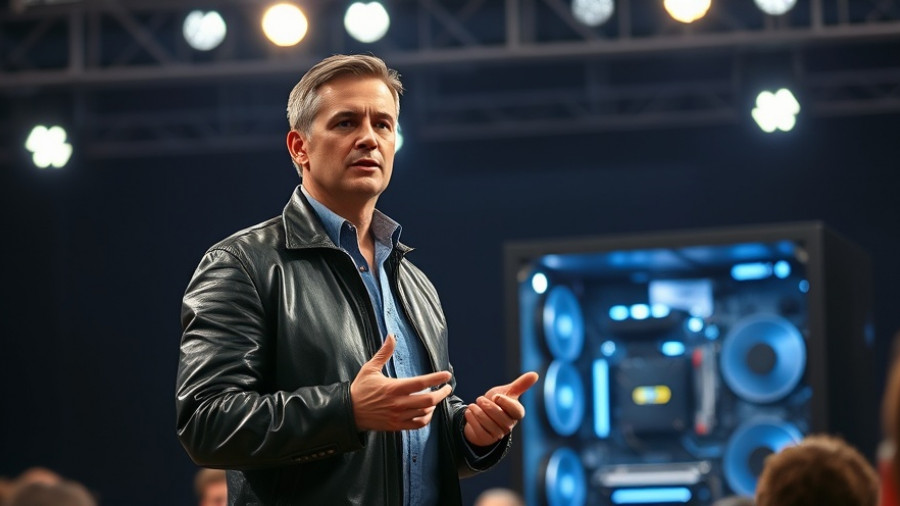
The Rise of Huawei's AI Technology: A New Player on the Block
In an age where artificial intelligence is becoming increasingly pivotal, Huawei is stepping up its game against established giants like Nvidia. The launch of Huawei's new Atlas 950 SuperCluster aims to disrupt the existing market dynamics, especially as it presents itself as a formidable challenger amidst U.S. sanctions targeting Chinese semiconductor advancements.
Breaking Down the Technical Innovations
The Atlas 950 SuperCluster is set to revolutionize AI computations by integrating over half a million Ascend chips. This architecture represents a significant shift from traditional chip designs and utilizes multiple supernodes — each supporting over 8,000 chips — to create a supercluster capable of sustaining massive computational tasks. Such innovations are essential for Huawei, especially as the U.S. continues to limit access to high-end semiconductor technology. Analyst opinions vary, with some seeing Huawei's ambitious plans as claims amidst some scepticism about their realizable potential.
Parallel Examples of Technological Innovation
Looking at historical references, past innovators like Intel and AMD successfully redefined computing ecosystems through targeted advancements. Huawei’s strategic implementation reflects this trend, aiming to utilize homegrown technology to counter GDPR restrictions. Just as Nvidia emerged dominant by innovating during a competitive landscape, Huawei seeks to forge its path in the face of adversity.
A Future Potential Impact on the AI Landscape
With the anticipated launch of the Atlas 960 SuperCluster in 2027, Huawei aims to bolster its capabilities even further, planning to deploy over one million chips. This development could have far-reaching implications across industries reliant on AI. As countries invest heavily in technology to gain competitive edges, the shift towards local competencies in the sector signals a potential realignment of technological power.
Potential Risks and Challenges
Yet, the road ahead is fraught with challenges. The ongoing geopolitical tensions could further complicate Huawei's ambitions not only in AI but also in global tech markets. Additionally, the skepticism surrounding Huawei’s claims raises questions about the realistic capabilities of their new technologies. Experts suggest that while Huawei's chip innovations are noteworthy, their execution remains the deciding factor in determining their success.
A Call to Action for AI Enthusiasts
For AI enthusiasts eager to stay informed and actively engage with groundbreaking innovations, understanding Huawei's developments is crucial. The dynamics of AI are shifting rapidly, and being aware of emerging technologies can empower individuals to stay ahead of industry trends. As the competition heats up, analyzing roles played by companies like Huawei and Nvidia will be essential for anyone invested in the future of AI!
 Add Row
Add Row  Add
Add 




Write A Comment